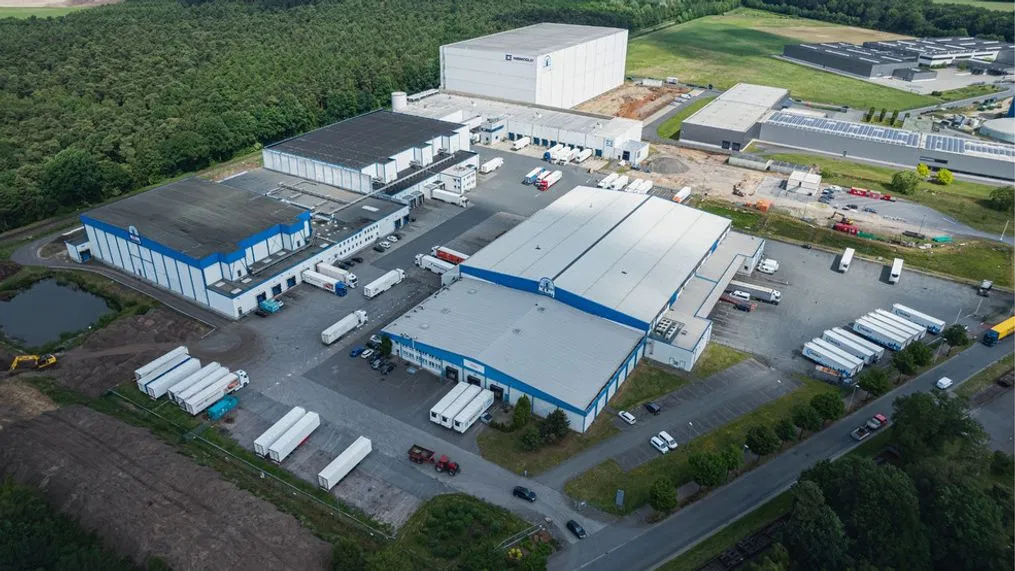Cold storage is an essential component of the global supply chain, playing a critical role in preserving the quality and safety of perishable goods. From food and pharmaceuticals to chemicals and other temperature-sensitive products, cold storage ensures that these items are stored and transported under optimal conditions. This article explores the importance of cold storage in the global supply chain and its impact on various industries.
- Ensuring Food Safety and Quality
1.1 Preservation of Fresh Produce
- Extended Shelf Life: Cold storage helps extend the shelf life of fresh produce by slowing down the metabolic processes that lead to spoilage.
- Nutritional Value: By maintaining optimal temperatures, cold storage preserves the nutritional value and flavor of fruits and vegetables, ensuring they reach consumers in the best possible condition.
1.2 Meat, Dairy, and Seafood
- Prevention of Spoilage: Cold storage is crucial for preventing spoilage and bacterial growth in meat, dairy, and seafood products, which are highly perishable and sensitive to temperature fluctuations.
- Quality Assurance: Proper cold storage maintains the texture, taste, and overall quality of these products, meeting consumer expectations and regulatory standards.
- Pharmaceutical and Healthcare Products
2.1 Vaccine Storage
- Temperature-Sensitive Vaccines: Many vaccines require strict temperature control to remain effective. Cold storage ensures vaccines are stored and transported within the required temperature ranges, preserving their efficacy.
- Global Distribution: Cold storage facilitates the global distribution of vaccines, particularly crucial during health crises such as the COVID-19 pandemic.
2.2 Biologics and Medications
- Stability and Potency: Biologics and certain medications must be stored at specific temperatures to maintain their stability and potency. Cold storage is essential for safeguarding these products from degradation.
- Regulatory Compliance: Adhering to regulatory requirements for the storage and transportation of pharmaceuticals ensures patient safety and product integrity.
- Impact on the Global Food Supply Chain
3.1 Reducing Food Waste
- Minimizing Spoilage: Cold storage significantly reduces food spoilage during storage and transportation, contributing to lower food waste levels globally.
- Sustainable Practices: By preserving food quality and extending shelf life, cold storage supports more sustainable practices within the food supply chain.
3.2 Meeting Consumer Demand
- Year-Round Availability: Cold storage enables the year-round availability of seasonal produce and perishable goods, meeting consumer demand for fresh and diverse food options regardless of the season.
- Global Trade: Cold storage supports global trade by allowing the safe and efficient transportation of perishable goods across long distances, connecting producers with markets worldwide.
- Support for Chemical and Industrial Products
4.1 Temperature-Sensitive Chemicals
- Safety and Stability: Certain chemicals and industrial products require temperature-controlled environments to remain stable and safe for use. Cold storage prevents chemical reactions that could lead to degradation or hazards.
- Quality Control: Maintaining consistent temperatures ensures the quality and effectiveness of temperature-sensitive chemicals, which are critical in various industrial processes.
4.2 Specialty Products
- Innovative Materials: The development and use of innovative materials, such as advanced composites and specialty polymers, often depend on precise temperature control during storage and transportation.
- Research and Development: Cold storage facilities support R&D efforts by providing the necessary conditions for storing experimental materials and chemicals.
- Technological Advancements and Innovation
5.1 IoT and Real-Time Monitoring
- Enhanced Monitoring: The integration of IoT devices in cold storage facilities allows for real-time monitoring of temperature, humidity, and other critical parameters, ensuring optimal storage conditions.
- Predictive Maintenance: Data collected from IoT devices can be analyzed to predict equipment failures and schedule maintenance proactively, reducing downtime and maintaining efficiency.
5.2 Automation and Robotics
- Improved Efficiency: Automation and robotics enhance the efficiency of cold storage operations by streamlining processes such as sorting, packing, and retrieval.
- Labor Savings: Automated systems reduce the reliance on manual labor, lowering operational costs and minimizing human error.
- Challenges and Future Trends
6.1 Energy Consumption
- Energy Efficiency: Cold storage facilities are energy-intensive, and improving energy efficiency is crucial for reducing operational costs and environmental impact. Innovations in energy-efficient refrigeration technologies and renewable energy integration are key trends in the industry.
- Sustainable Practices: Adopting sustainable practices, such as using eco-friendly refrigerants and implementing green building designs, helps mitigate the environmental impact of cold storage operations.
6.2 Regulatory Compliance
- Global Standards: Compliance with global standards and regulations for the storage and transportation of perishable goods is essential for ensuring product safety and quality.
- Continuous Improvement: The cold storage industry must continuously improve practices and adopt new technologies to meet evolving regulatory requirements and consumer expectations.
Cold storage is a vital component of the global supply chain, ensuring the quality, safety, and availability of perishable goods across various industries. From preserving food and pharmaceuticals to supporting the storage of temperature-sensitive chemicals, cold storage facilities play a crucial role in maintaining the integrity of products throughout their journey. Technological advancements and innovations continue to drive improvements in energy efficiency, monitoring, and automation, addressing the challenges faced by the industry. As global demand for perishable goods grows, the importance of cold storage in the supply chain will only increase, making it essential for businesses to invest in and prioritize these critical facilities.


 Dave McGowan has been a member of the WEL Family since May 1989. He is a husband and father of two children. Dave is also a U.S. Army veteran and served in Vietnam in 1971-1972, and he attended driving school soon after he was released from the military in 1974.
Dave McGowan has been a member of the WEL Family since May 1989. He is a husband and father of two children. Dave is also a U.S. Army veteran and served in Vietnam in 1971-1972, and he attended driving school soon after he was released from the military in 1974. During his career with WEL, Phil has worked as a driver, dispatcher, terminal manager and customer service manager. He says he always was a driver first, though non-driving jobs taught him financial management that helps him as an owner-operator.
During his career with WEL, Phil has worked as a driver, dispatcher, terminal manager and customer service manager. He says he always was a driver first, though non-driving jobs taught him financial management that helps him as an owner-operator.